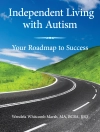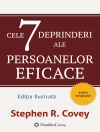Child well-being, which covers everything from family relationships to their material well-being, is now increasingly being talked about in policy and practice nationally and internationally. However, a lack of clarity remains about what the idea really means and how it can help children.
This book brings together contributions from international experts in order to define child well-being and to further understand how it can improve children’s lives. Issues covered include how the idea is being used in government policy and practice in the UK and USA, how children can contribute to the understanding of child well-being, recent advances in the exploration of indicators and measures of well-being, and the importance of context in making comparisons. A concluding chapter explores whether child well-being is a useful concept in understanding children’s lives, whether it positively contributes to policy and practice, and the value of international comparisons.
This edited collection is essential reading for all those involved in understanding children’s lives and who have responsibility for improving them, including practitioners, policymakers, students and academics.
สารบัญ
Foreword. Acknowledgements. Preface. Part 1. Understanding Children’s Lives at Home, School and in the Community. 1. Child Well-Being, Child Development and Family Lives. Jane Aldgate, The Open University, UK. 2. Children’s Views on Child Well-Being. Colette Mc Auley, University College Dublin, Ireland, Roger Morgan, Children’s Rights Director of England and Wendy Rose, The Open University, UK. 3. Introducing the Concept of Child Well-Being into Government Policy. Wendy Rose and John Rowlands, Thomas Coram Research Unit, Institute of Education, UK. 4. How Schools Can Contribute to Pupils’ Well-being. Pamela Munn, University of Edinburgh, UK. 5. Youth, Civic Engagement and Support: Promoting Well-being. Pat Dolan, Child and Family Research Centre, National University of Ireland, Galway, Ireland. Part 2. Child Well-Being: International Developments and New Policy and Research Directions. 6. Developing Indicators for Child Well-Being in a Changing Context. Asher Ben-Arieh, Hebrew University of Jerusalem, Israel. 7. National Reporting on Child Well-Being – The State of the Nation’s Children’s Reports in the Republic of Ireland. Anne-Marie Brooks, Sinead Hanafin and Sylda Langford, Office of the Minister for Children, Dublin, Ireland. 8. The Challenge of Improving Children’s Well-Being and Measuring Outcomes – An American Perspective. Peter J. Pecora, University of Washington and Casey Family Programs, USA and Markell Harrison-Jackson, Pinal County Education Service Agency, USA. 9. The Subjective Well-Being of Children. Jonathan Bradshaw, University of York, UK, Gwyther Rees, Children’s Society, UK, Antonia Keung, University of York, UK and Haridhan Goswami, Children’s Society, UK. Part 3. Child Well-Being: Current Issues and Future Directions. 10. Child Well-Being – Current Issues and Future Directions. Colette Mc Auley and Wendy Rose. References. List of contributors. Index.
เกี่ยวกับผู้แต่ง
Wendy Rose is Senior Research Fellow in the Faculty of Health and Social Care at the Open University, UK, and works on national and international child welfare research and development projects. She was previously a senior civil servant advising the government on children’s policy.












